Young Children’s Voices in Mathematical Problem Solving
Contributed by Dr Ho Siew Yin and Sng Wei Qin Abbie, from NTUC First Campus, for SingTeach Virtual […]
Read More
The AppleTree project revealed that educators should:
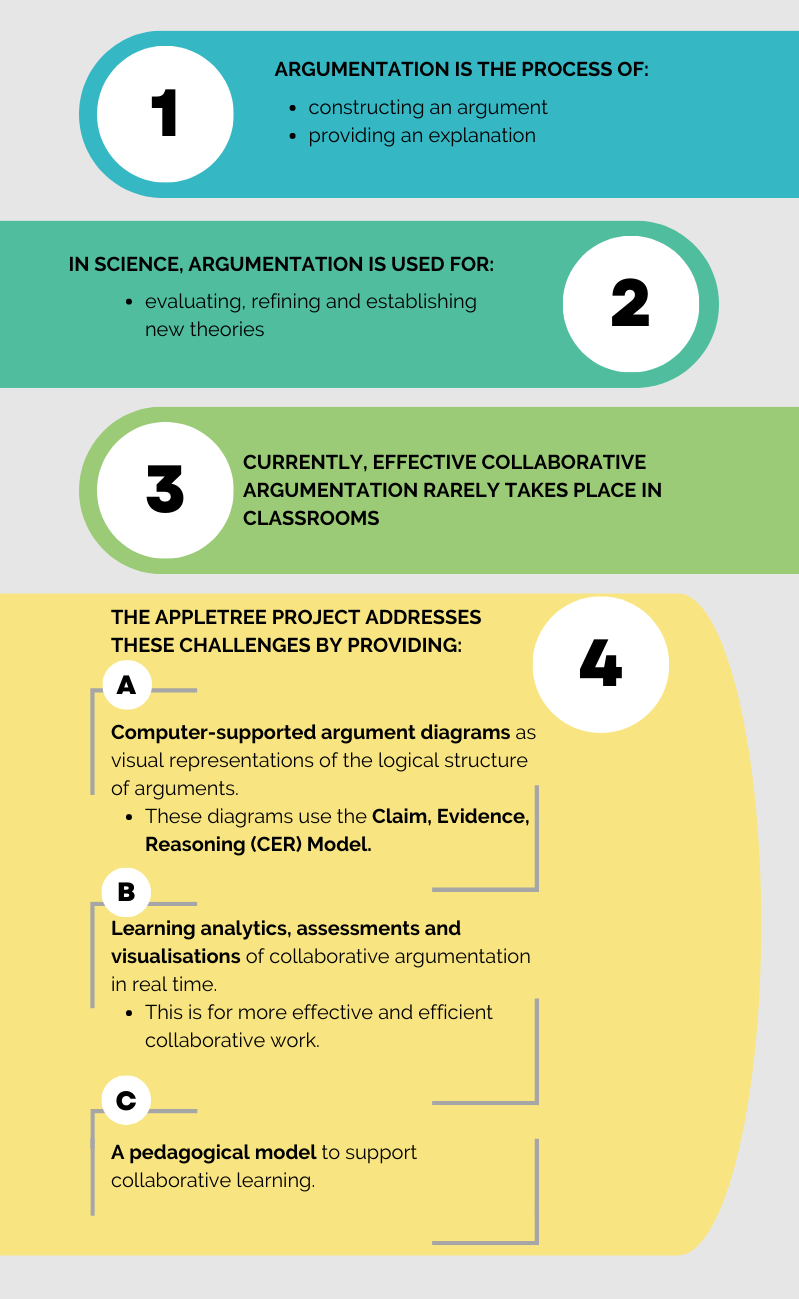
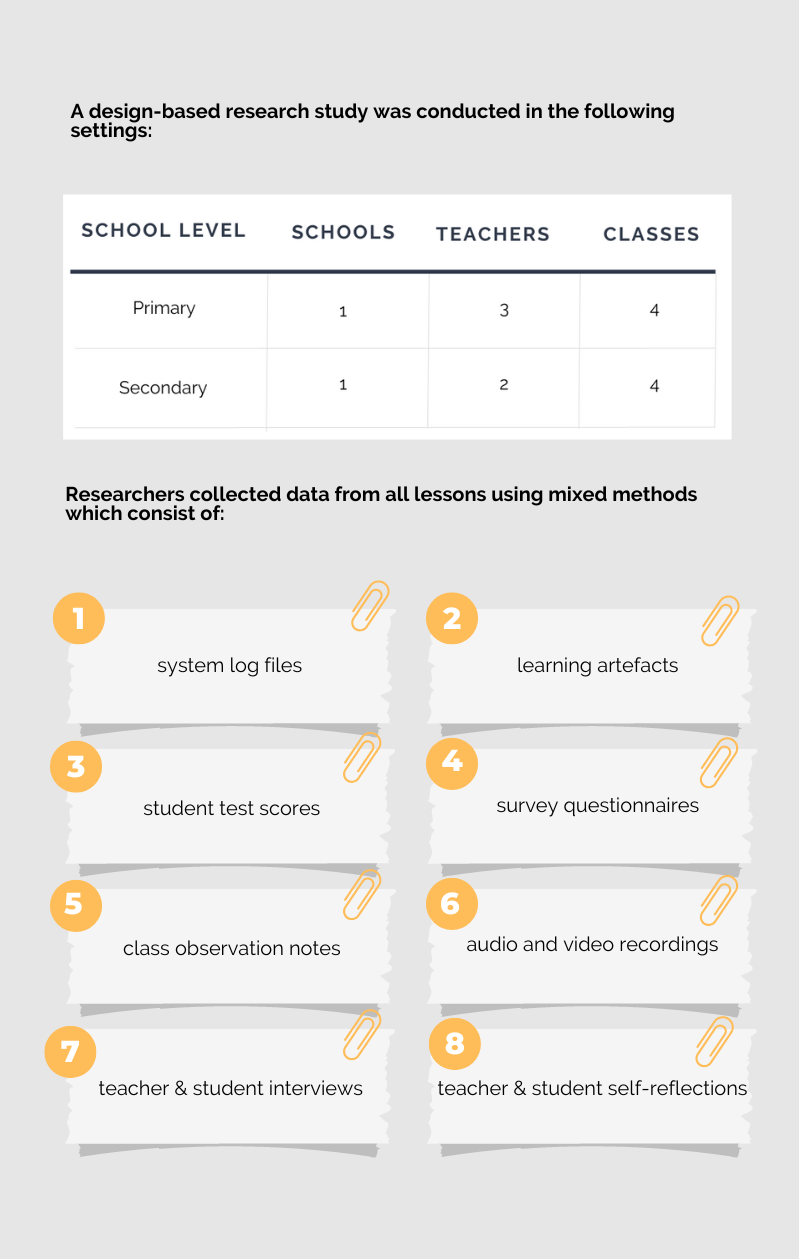
This project has developed a computer system called the “AppleTree” and an accompanying pedagogical model “Spiral Model of Collaborative Knowledge Improvement (SMCKI)” to enable collaborative argumentation for science learning.
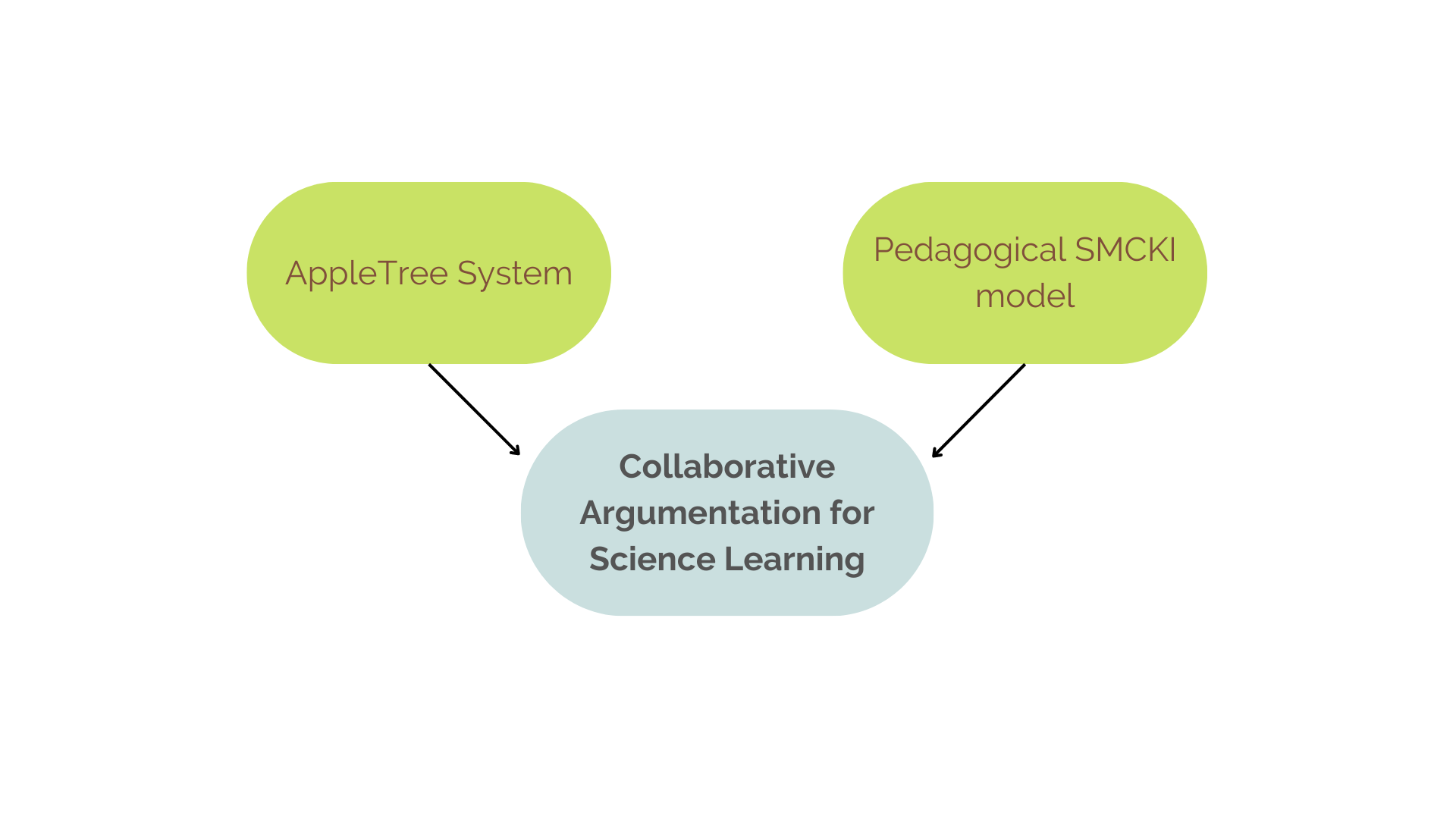
The AppleTree System
AppleTree is short for Assessing Processes and Products for LEarning (APPLE) by Tracking and Reporting Efficacy and Effectiveness (TREE). As an online platform, it has three main functions:
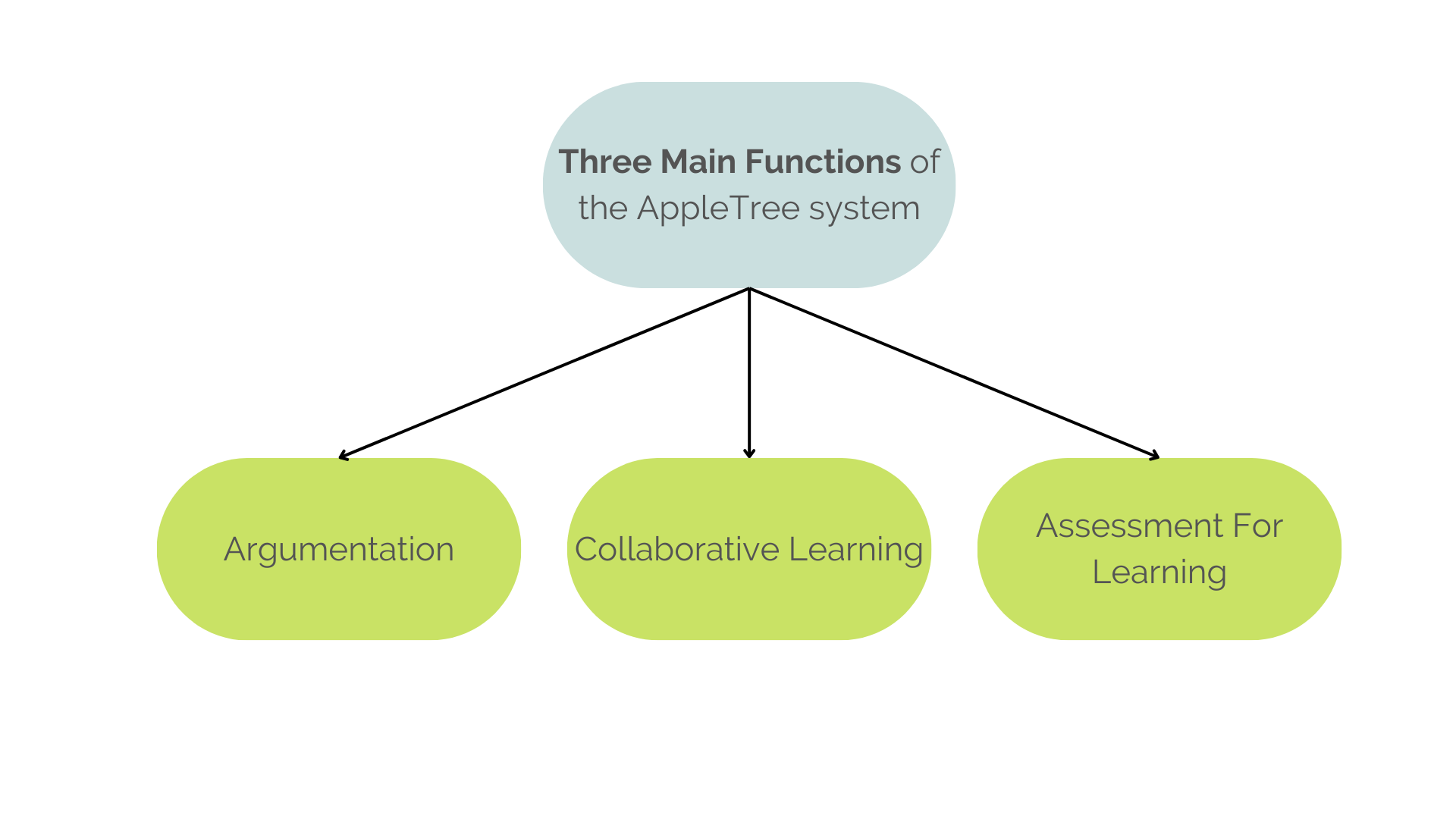
(1) Argumentation
The AppleTree system supports argumentation by:
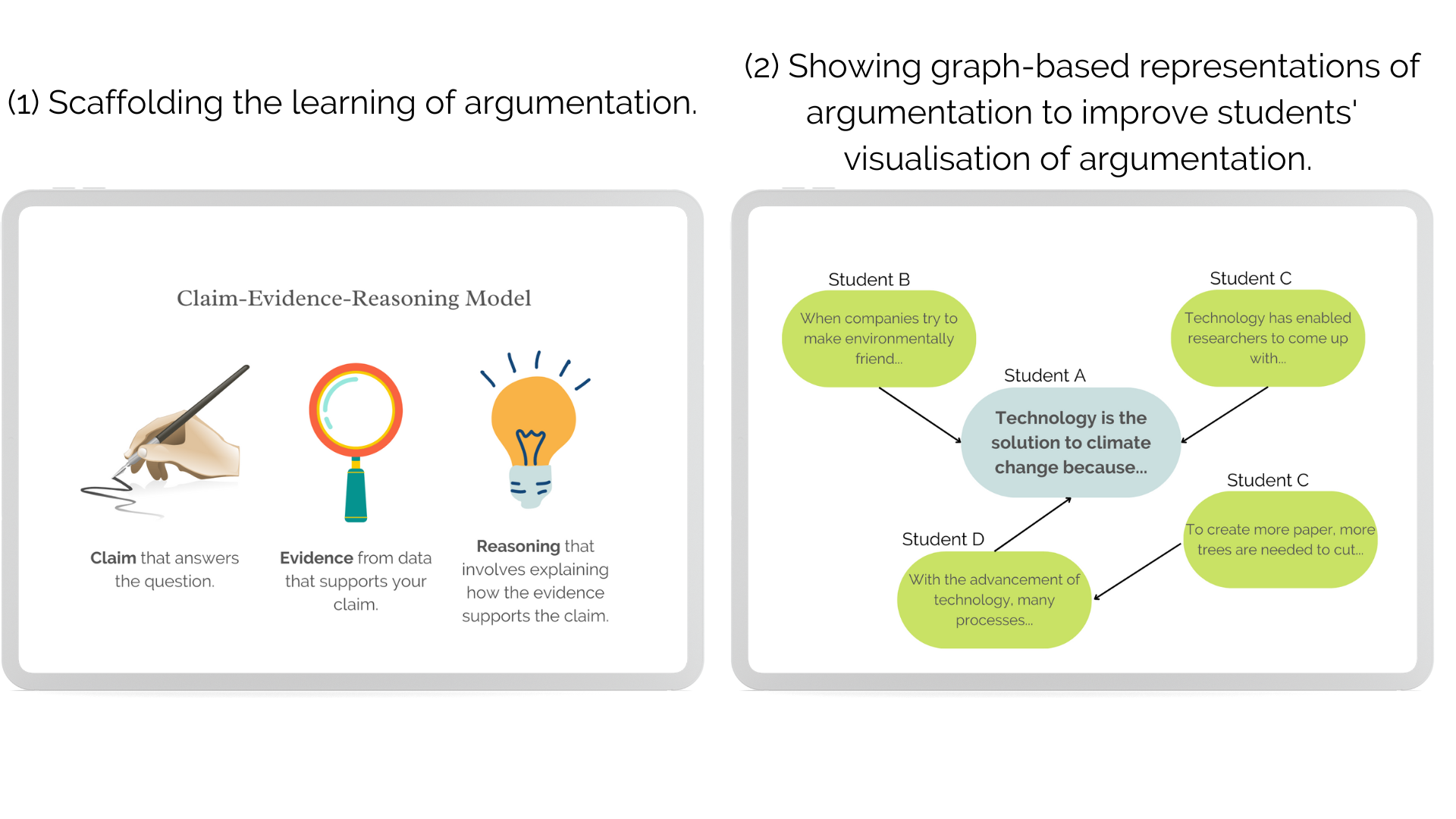
(2) Collaborative Learning
The AppleTree system supports collaborative learning through:
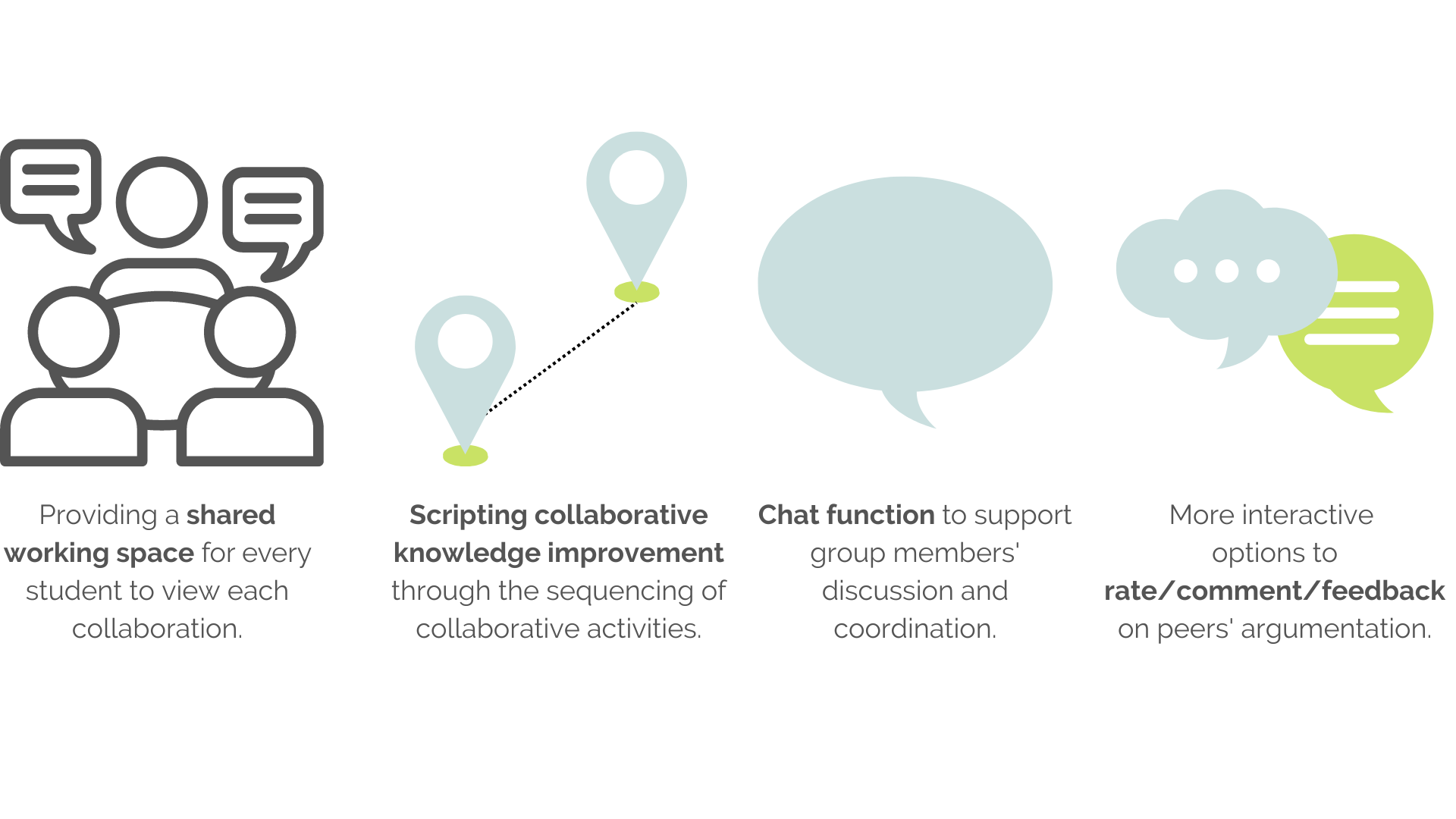
(3) Learning Analytics and Assessment for Learning
The AppleTree system provides real-time visual learning analytics on:
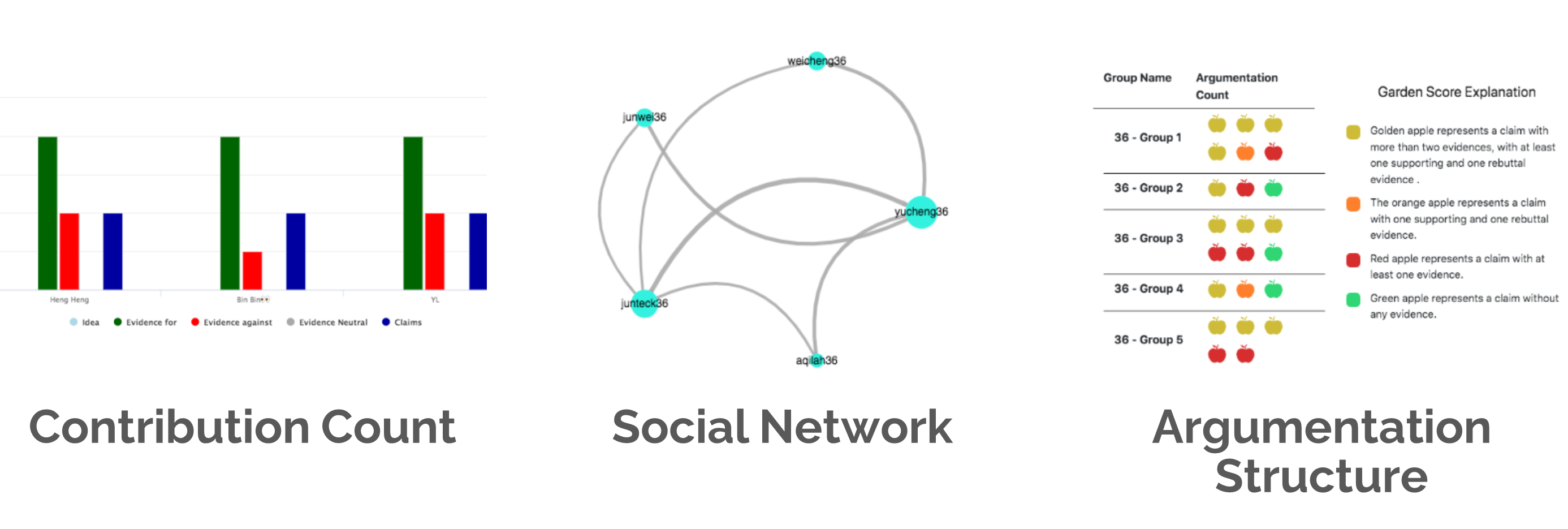

These learning analytics help students and teachers monitor the progress of collaborative argumentation.
The Spiral Model of Collaborative Knowledge Improvement (SMCKI)
How should the SMCKI be used?
How does the SMCKI work?
Phases of the SMCKI Model detailed:
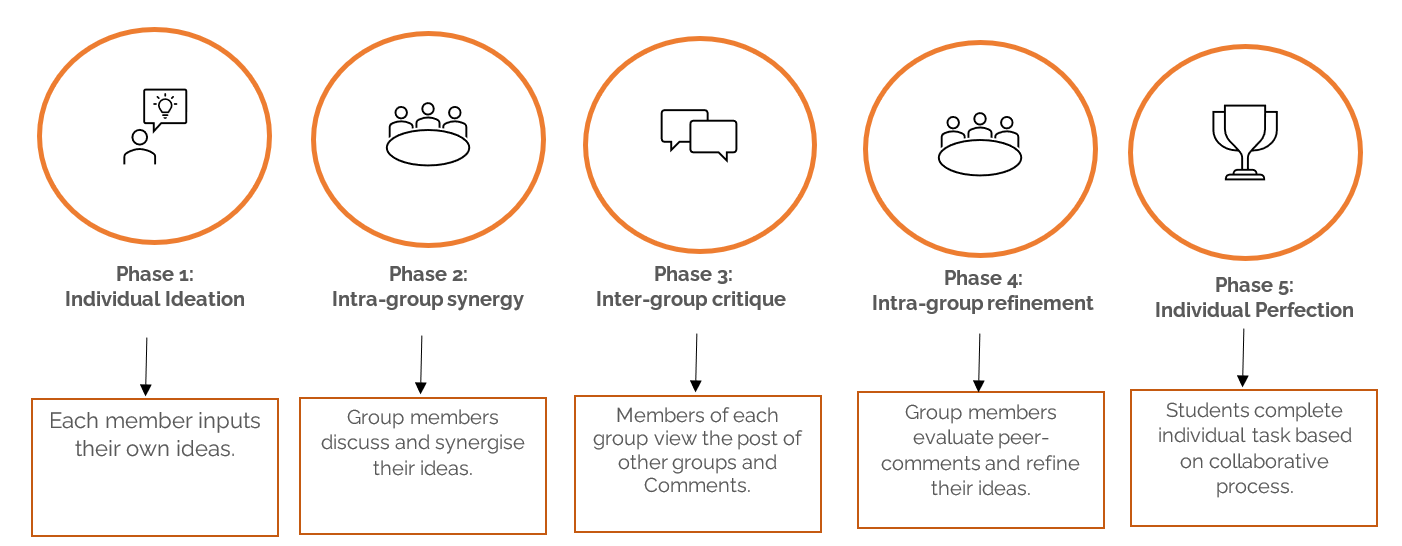
After using the AppleTree system and Spiral Model for computer-supported collaborative argumentation, students improved their science learning and 21st century competencies.
For science learning, students:
For 21st century competencies, students:
The AppleTree System Toolkit
Access the toolkit here: www.bit.ly/appletree-toolkit
What subjects can the toolkit be used for?

In addition to science learning, further research has shown that this AppleTree toolkit can be used for other subjects such as Mother Tongue, English Language Learning, Social Studies and History. It can be employed for any collaborative learning contexts in various subjects.
How should the toolkit be used?
The toolkit can be used for both learners and teachers as summarised below:
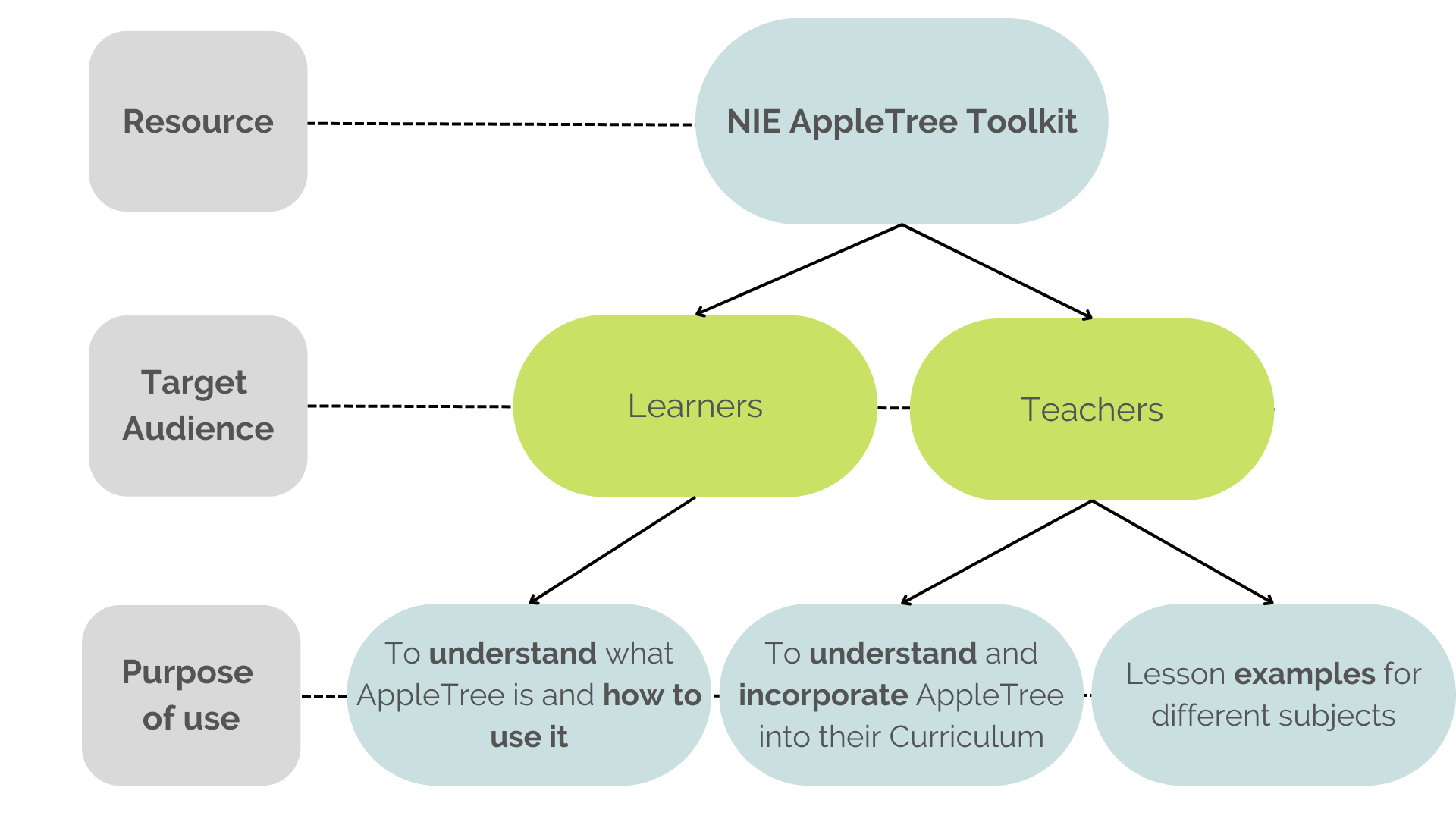
How can I access the toolkit?
Access the toolkit on how to use the AppleTree system here
How can I access the Apple Tree System?
(1) access the sign-in page here: https://appletree.sg/sign-in
(2) login with the following details:
Username: testtr01
Password: appletree
For educators interested in finding out more about the AppleTree project research and related references, you may refer to:
The following projects are associated with the AppleTree project
To learn more about this research, please contact A/P Chen Wenli at wenli.chen@nie.edu.sg
Principal Investigator
Associate Professor Chen Wenli, Learning Sciences and Assessment, NIE
Co-Principal Investigator
Professor Looi Chee Kit, Learning Sciences and Assessment, NIE
Co-Principal Investigator
Assistant Professor Wen Yun, Learning Sciences and Assessment, NIE
Co-Principal Investigator
Associate Professor Jennifer Yeo (formerly of NIE)
Collaborator
Associate Professor Sun Aixin, School of School of Computer Science and Engineering, NTU
AppleTree-Supported Collaborative Argumentation for Science Learning was funded by the Education Research Funding Programme, National Institute of Education, Nanyang Technological University, Singapore (project no. OER 07/17 CWL). Any opinions, findings, and conclusions or recommendations expressed in this material are those of the author(s) and do not necessarily reflect the views of the Singapore MOE and NIE.
This knowledge resource was extracted and reconstructed from the published materials from the research team and presented by Jared Wong and Monica Lim.